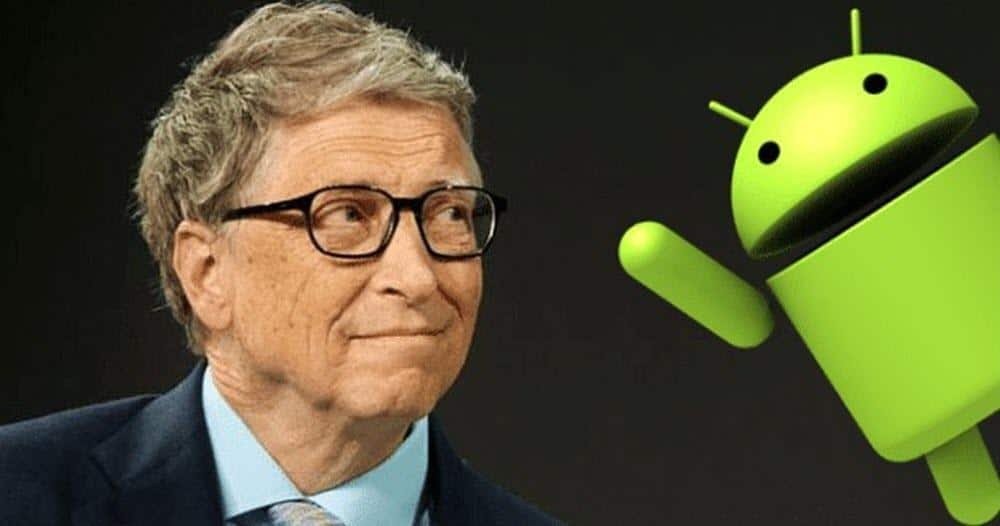Microsoft and Android: In the smartphone war there are two winners: Android and iOS. Most of the rivals have long given up, with Microsoft slowly abandoning its last vestiges Windows Phone.
Of course, this does not mean that he is not sorry. Microsoft co-founder Bill Gates recently mentioned that the company's failure to develop an Android mobile platform was one of its biggest mistakes.
"My biggest mistake was the mismanagement that did not allow Microsoft to be what Android is today, a typical phone platform, a platform that is not Apple. "It was something Microsoft had to win," he said at a recent event organized by a US venture capital firm.

Or more statement raises two related questions.
First, why does Microsoft, with its huge capital and brilliant developers, want to get something like Android? And what would the tech world look like today if it did?
Microsoft has always tried to enter the smartphone market. Recall that long before the release of Android and iOS, the company was developing software for different mobile devices (PDAs as it was then called).
But with the release of the iPhone and iOS, and then Android, Microsoft has been struggling for years to make up for the difference, even buying Nokia smartphone company in a doomed attempt to revive its attack before finally giving up everything.
Of course, there are many reasons why Microsoft did not succeed and could not create something like Android, or even iOS.
To me, a big part of the problem for Microsoft was that, for too long, it saw smartphones as one miniature of the standard desktop (it even had a brand name called Pocket PC).
This is not at all surprising for a company that is so dedicated to computers, but it meant the idea of a whole new touch-based user interface and a new way of using applications.
Although when the iPhone was first released, it had only 500 apps and Microsoft already had 18.000 for Windows Mobile, the real revolution was the integrated iOS and Android app stores that made downloads much easier.
Another big reason why Microsoft could not create Android was that it was (and still is, to some extent) an open source product, at a time when open source was still treated as a "cancer" and with great suspicion from Microsoft.
But the open nature of Android meant that device vendors could take the operating system and tweak it to use only the comeyea that they liked.

But most importantly, Android was cheap to use. Device makers did not have to worry about high licensing fees, which resulted in cheaper devices, but also manufacturers who were not afraid to experiment.
So there was a huge explosion of different Android devices in the market. So as Microsoft lost its market share, it dropped licensing fees, but then it was too late (a few years later Microsoft offered a free upgrade to Windows 10 to many users, showing how widespread the idea was).
To top it all off, it seems there was room in the market for a mass-market mobile operating system, which was Android, while Apple was already releasing a locked-down OS on premium Buy.
Was there room for an operating system that did not belong to Apple and what was it worth? $ 400 billion to be transferred from Company G to Company M
That would give Microsoft $ 400 billion at the expense of Google.
A smaller Google, and a larger Microsoft. Perhaps, if Microsoft had succeeded with the mobile operating system, it would not have placed its axis in the cloud or perhaps Google would have moved faster towards the cloud. Of course it is very difficult to measure the effects of such a big change.
As for individual users, it's worth remembering that Google's Android profits come from services (maps, search, email) that come with the operating system.
This was one of the great discoveries with Android, but these Google services make money by collecting our information. So Android played an important role in streamlining the idea that we should share our privacy to access these services.
Most of us are still quite happy with this deal, although there are still many who are concerned about data collection by Google.
Could Microsoft have created something as successful as Android without using similar tactics?
ΣWindows may not collect the information that Google collects today, but they continue to use telemetry services.





